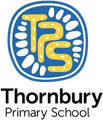Wellbeing

Problem-solving
Children of ALL ages face problems and challenges on a daily basis. Examples of this include toy-related conflicts, disagreements on the rules of a game and negative peer pressure. Parents and teachers can’t be there to solve every problem for children. Nor would we want to. For children to grow into confident, independent, and successful individuals, they need to learn how to solve problems by themselves. Children with problem-solving skills can manage their emotions, think creatively, and persist until they find a solution.
Problem-solving is one of the eight topics of social and emotional learning covered in Respectful Relationships. At TPS, across each year level, the Respectful Relationship program provides a number of learning activities to develop students’ problem-solving skills. The activities in the program assist students to develop their critical and creative thinking skills, and to apply them to scenarios exploring personal, social and ethical dilemmas.
At home you can help your child develop problem-solving skills by:
- Demonstrating a willingness to make mistakes and try various solutions. It’s ok if the first solution doesn’t work!
- Modelling problem solving skills and thinking-aloud, so that children become familiar with strategies e.g. what are the advantages and disadvantages?
- Having discussions about what is out of our control and what is within our control. As we're solving a problem, we should focus on the things we can actually control.
- Show children that you value their opinion by asking for their advice. This also gives them opportunities to practise problem solving and develops their confidence to attempt these skills on their own.
